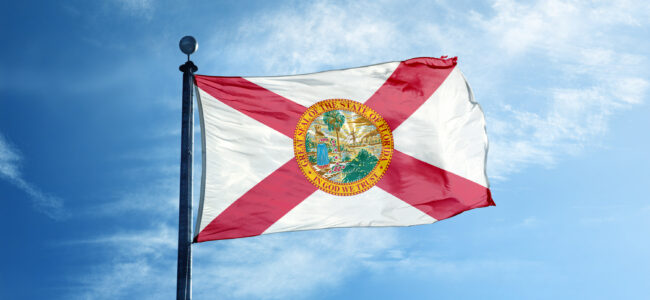BlogLine
Florida’s “CHOICE” Act establishes new employer-friendly protections for garden leave and noncompete agreements
7/18/25

By: Emily R. Muzyka
Florida’s Contracts Honoring Opportunity, Investment, Confidentiality, and Economic Growth Act (also known as the CHOICE Act), has gone into effect as of July 1, 2025. The Act provides for non-competition periods of up to four (4) years after employment is ended. The Act also calls for streamlined enforcement of covered non-compete agreements, which includes automatic temporary injunctions against covered employees and their new employer. Both non-competition and garden leave agreements are covered under the Act.
Covered Employees
Under the Act, a “covered employee” is defined as “an employee or an individual contractor who earns or is reasonably expected to earn a salary greater than twice the annual mean wage of the county in Florida in which the employer has its principal place of business, or the county in Florida in which the employee resides if the employer is not principally based in this state.” Notably, healthcare practitioners are excluded from being a covered employee regardless of their salary level. A “covered employer” is defined as an entity or individual who employs or engages a covered employee.
Garden Leave Agreements
The Act states that a covered garden leave agreement “means a written agreement, or part of a written agreement, between a covered employee and covered employer in which: (a) the covered employee and covered employer agree to up to, but no more than, 4 years of advance, express notice before terminating the employment or contractor relationship; (b) the covered employee agrees not to resign before the end of such period; and (c) the covered employer agrees to retain the covered employee for the duration of such notice period and to continue paying the covered employee the same salary and providing the same benefits that the covered employee received from the covered employer in the last month before the commencement of the notice period. The covered employer is not obligated to provide discretionary incentive compensation or benefits or have the covered employee continue performing any work during the notice period.” A covered garden leave agreement will not violate public policy as long as the covered employee was advised, in writing, of the right to seek counsel before the agreement was executed and was provided notice of the provision at least 7 days before the offer of employment expired, the covered employee acknowledged, in writing, receipt of confidential information or customer relationships, and the covered garden leave agreement follows the specifications set forth within the Act. These specifications include that a covered employee does not have to provide services to the covered employer after the first 90 days of the notice period, that a covered employee may engage in nonwork activities at any time during the remainder of the notice period, that the covered employee may work for another employer during the remainder of the notice period with permission from the covered employer, and that the garden leave agreement notice period may be reduced if the covered employer provides at least 30 days’ advance notice in writing to the covered employee.
If a covered employee breaches a covered garden leave agreement, then a court, upon application, must issue a preliminary injunction prohibiting the employee from providing services to any other person or entity during the notice period.
Non-Compete Agreements
The Act states that a covered non-compete agreement means a written agreement, or a portion of a written agreement, between a covered employee and a covered employer in which, for a period not to exceed 4 years and within the geographic area defined in the agreement, the covered employee agrees not to assume a role with or for another business, entity or individual: (a) in which the covered employee would provide services similar to the services provided to the covered employer during the 3 years preceding the non-compete period; or (b) in which it is reasonably likely the covered employee would use the confidential information or customer relationships of the covered employer. A covered non-compete agreement will not violate public policy as long as the covered employee was advised, in writing, of the right to seek counsel before the agreement was executed and was provided notice of the provision at least seven days before the offer of employment expired, the covered employee acknowledged, in writing, receipt of confidential information or customer relationships, and that the covered agreement provides that the non-compete period is reduced day-for-day by any nonworking portion of the notice period, pursuant to a covered garden leave agreement between the covered employee and covered employer.
If a covered employee breaches a covered non-compete agreement, then a court, upon application, must issue a preliminary injunction prohibiting the employee from providing services to any other person or entity during the notice period.
For Employers
The CHOICE Act applies to any non-compete or garden leave agreement in compliance with the Act that was signed after July 1, 2025. Accordingly, employers may want to consider entering into new agreements with their covered employees in compliance with the CHOICE Act. The ability for employers to obtain automatic injunctions for agreements covered by the CHOICE Act will likely shorten and decrease the cost of enforcing non-compete and garden leave agreements. Employers should review the Act to ensure that all new agreements are properly covered moving forward.
For more information, please contact Emily Muzyka at emily.muzyka@fmglaw.com or your local FMG attorney.
Information conveyed herein should not be construed as legal advice or represent any specific or binding policy or procedure of any organization. Information provided is for educational purposes only. These materials are written in a general format and not intended to be advice applicable to any specific circumstance. Legal opinions may vary when based on subtle factual distinctions. All rights reserved. No part of this presentation may be reproduced, published or posted without the written permission of Freeman Mathis & Gary, LLP.
Share
Save Print
